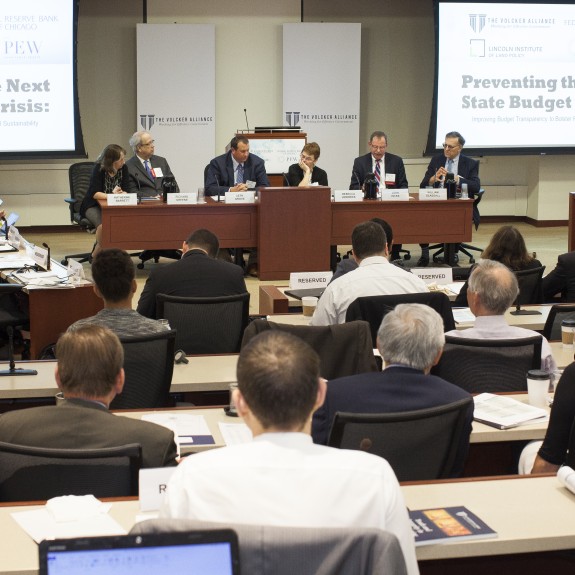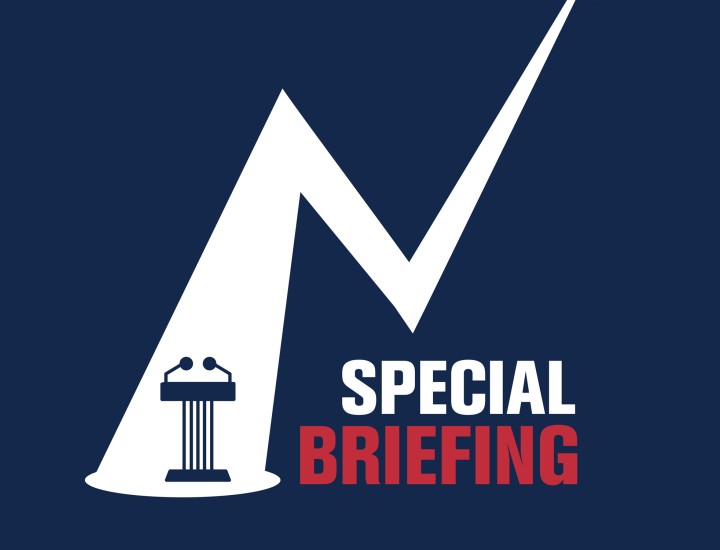Truth and Integrity in Government Finance
Truth and Integrity in Government Finance
The Truth and Integrity in Government Finance initiative is a multiyear study of state and local budgeting, financial reporting, and fiscal practices across the United States.

The Truth and Integrity in Government Finance initiative is a multiyear study of state and local budgeting, financial reporting, and fiscal practices across the United States.
State governments are America’s laboratories of democracy, as Supreme Court Justice Louis Brandeis once observed. They generate more than $2 trillion in annual expenditures, equivalent to about 10 percent of US gross domestic product. In so doing, the fifty states play a central role in the provision of public services that are vital to maintaining GDP growth and ensuring that all Americans have opportunities to advance economically.
To ensure they can fulfill these obligations, states need to pursue sound fiscal practices. Yet many continue to balance their budgets using accounting and other practices that obscure rather than clarify spending choices. These practices make budget trade-offs indecipherable, produce poorly informed policymaking, pass current costs on to future generations, and weaken the fiscal capacity of states to support the cities and counties that depend on their aid.
To help drive improvements in such critical fiscal trade-offs and decisions, the Volcker Alliance in 2014 launched the Truth and Integrity in Government Finance Project. The project’s goal is to help improve budget transparency and fiscal sustainability in the states, both through identifying procedures that need improvement and by providing concrete examples of best practices that states should consider adopting via executive orders, remedial legislation, or constitutional amendments.
The centerpiece of Truth and Integrity in Government Finance is Truth and Integrity in State Budgeting, a unique and comprehensive annual report evaluating and grading the budget practices of all fifty states.
- The first survey, published in 2017, Truth and Integrity in State Budgeting: What Is the Reality?, covered fiscal 2015-2017.
- The 2018 report, Truth and Integrity in State Budgeting: Preventing the Next Fiscal Crisis, graded state budgets in fiscal 2016-2018.
- The 2019 report, Truth and Integrity in State Budgeting: The Balancing Act, assessed state budgets in fiscal 2017-2019.
- The most recent report, Truth and Integrity in State Budgeting: Preparing for the Storm, provides an analysis of fiscal actions from fiscal 2015 through 2019.
The reports are based on answers to a standardized set of detailed research questions in five critical categories designed to assess the transparency and sustainability of each state’s budgets. The survey is conducted by public finance professors and graduate students, many of them former state budget office officials, at eight leading schools of public administration or policy across the US. The reports also build upon the work from 2011 to 2014 of the State Budget Crisis Task Force, led by Volcker Alliance Chairman Paul A. Volcker and former New York State Lieutenant Governor Richard Ravitch, who served as a Volcker Alliance director.
Augmenting the Truth and Integrity in State Budgeting reports is the interactive state budget Data Lab, which aggregates and adapts the Alliance's research findings into a rich array of datasets and brings over 6,000 data points from fiscal 2015 through 2019 to life through interactive charts and visual comparison tools. The initial release of the Data Lab followed the rollout in 2018 of a comprehensive set of budget report cards for each state. They can be accessed via an interactive map that also takes users to additional information about each state’s budget process originally compiled in the Alliance's 2016 publication State Budget Sources: An Annotated Reference Guide to State Budgets, Financial Reports, and Fiscal Analyses and updated periodically.
Among the Alliance’s recommendations to states are discouraging the use of one-time revenue measures to balance budgets; the adoption of long-term revenue forecasting and fortified rainy day fund procedures; strengthened funding levels of public employee pension and retiree health care plans; and improved budget transparency, especially in disclosures of the cost of tax expenditures and deferred infrastructure maintenance. As part of the project, the Alliance has cosponsored several conferences on state and local fiscal transparency and stress with the Federal Reserve Banks of New York, Chicago, and Atlanta.
TIGF

